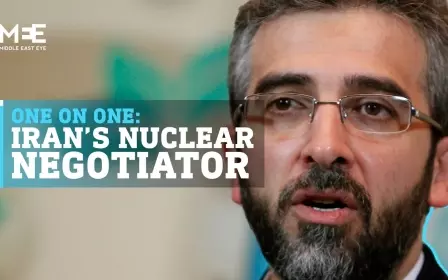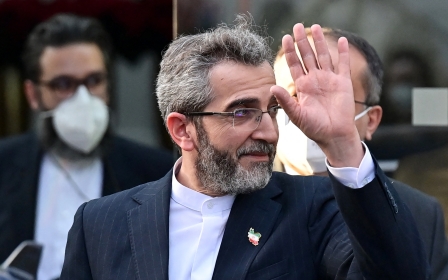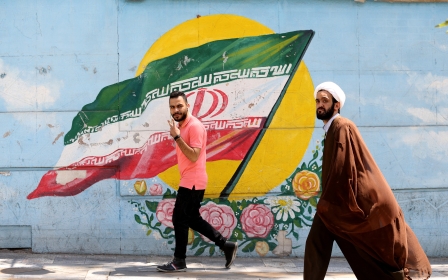Iran blames US reluctance to lift sanctions as main obstacle to reviving nuclear deal
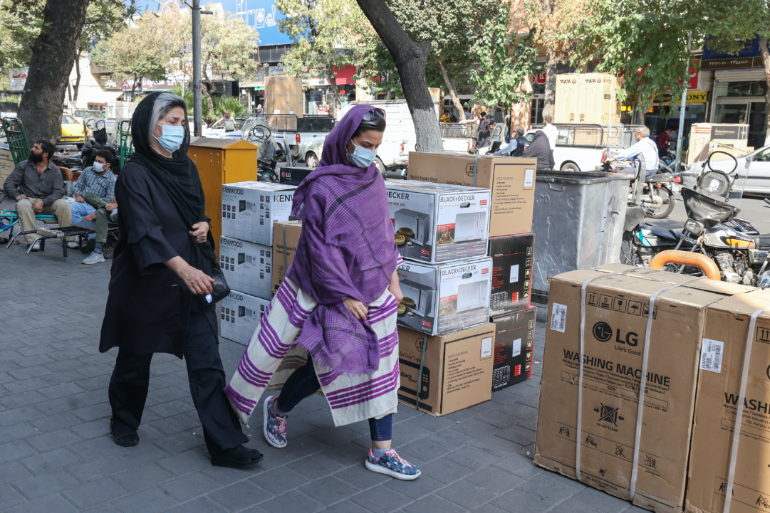
An Iranian official said on Sunday that the United State's reluctance to lift all US sanctions is the main obstacle to reviving the 2015 Iran nuclear deal.
The official told Iran's Tasnim news agency that Washington was unwilling to remove sanctions on Iran as indirect talks to reinstate the pact broke off on Friday. Both sides said that talks would resume the following week.
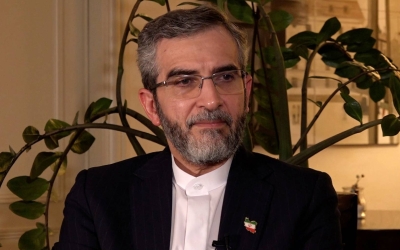
New MEE newsletter: Jerusalem Dispatch
Sign up to get the latest insights and analysis on Israel-Palestine, alongside Turkey Unpacked and other MEE newsletters
"It is now clear that Washington's reluctance to give up sanctions altogether is the main challenge to the progress of the talks," the unnamed official was quoted as saying.
"We believe that a deal is within reach if the US government gives up its campaign of maximum pressure and the European parties show serious flexibility and political will in the talks."
This admission comes after Iran's senior nuclear negotiator, Ali Bagheri Kani, told Middle East Eye that the country was tabling two documents in Vienna that demanded the removal of all sanctions.
In his first interview since the talks began, Kani told MEE that the onus was on the US, not Iran, to come to the table.
"The ball is in the court of the Americans. The Americans must remove the sanctions," said Kani.
Tehran has placed the onus on Washington because the former US President Donald Trump had withdrawn the United States from the deal and reimposed US sanctions, prompting Iran to begin violating nuclear restrictions in 2019.
No compromise
A US State Department official told Reuters on Saturday night that Iran had "abandoned" any possibility of a compromise that would help revive the nuclear deal.
The anonymous US official noted that Tehran's stance in demanding the lifting of sanctions disappointed western officials as well as China and Russia - two countries that are historically more sympathetic to Iran.
While stressing that the United States still wanted to revive the deal, under which Iran had limited its nuclear program in return for relief from economic sanctions, the official told reporters time was running short.
These talks are the first to be held since Ebrahim Raisi came to power in Iran after six rounds of indirect negotiations.
Middle East Eye delivers independent and unrivalled coverage and analysis of the Middle East, North Africa and beyond. To learn more about republishing this content and the associated fees, please fill out this form. More about MEE can be found here.


